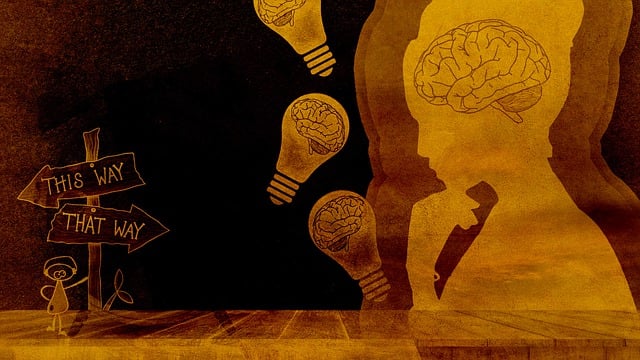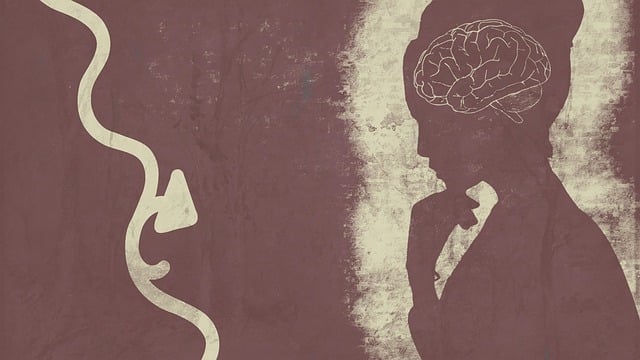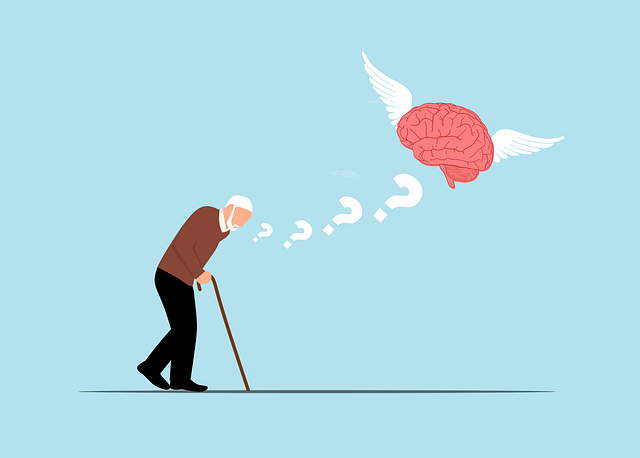Mental illness stigma hinders access to help, fueled by judgment fear and societal misconceptions. To combat this, implement strategies like promoting therapy for mindfulness among healthcare providers, creating safe spaces for patients to share struggles without repercussions. Community programs empowering individuals to challenge stigma further improve access to mental health services. Therapy for mindfulness uses present-moment awareness exercises to enhance stress management, self-understanding, and resilience, normalizing conversations about well-being and reducing stigma's isolating effects. Comprehensive strategies including education, advocacy, and outreach break down barriers, foster compassion, and create inclusive cultures.
Mental illness stigma remains a significant barrier to individuals seeking help. This article explores comprehensive strategies to reduce this societal burden, including understanding the root causes of stigma and its impact on support-seeking behaviors. We delve into the transformative power of therapy as a tool to challenge internalized stigma, alongside the benefits of mindfulness practices for self-care and fostering supportive communities. Additionally, we discuss long-term change agents like education and advocacy in promoting mental health literacy.
- Understanding Stigma: Barriers to Seeking Help
- The Role of Therapy in Challenging Stigma
- Mindfulness Practices for Self-Care and Community Building
- Strategies for Long-Term Change: Education and Advocacy
Understanding Stigma: Barriers to Seeking Help

Stigma surrounding mental illness remains a significant barrier to individuals seeking help and support. Often, those struggling with their mental health avoid reaching out for assistance due to the fear of judgment, discrimination, or social exclusion. This internalized stigma can stem from societal misconceptions and negative perceptions associated with various mental disorders. As a result, many people suffer in silence, allowing symptoms to worsen and impacting their overall well-being.
Understanding these barriers is crucial when developing strategies for stigma reduction. Initiatives such as promoting therapy for mindfulness and compassion cultivation practices among healthcare providers can make a significant difference. By fostering an environment of empathy and understanding, healthcare professionals can encourage patients to open up about their struggles without fear of repercussions. Moreover, incorporating resilience-building techniques in both clinical settings and community programs can empower individuals to challenge stigma head-on, ultimately leading to improved access to mental health services.
The Role of Therapy in Challenging Stigma

Therapy plays a pivotal role in challenging mental illness stigma by fostering self-awareness and providing a safe space for individuals to express their experiences. Through therapy for mindfulness, clients develop crucial self-Awareness exercises that help them understand their thoughts and emotions better. This enhanced cognizance enables people to recognize and challenge the negative beliefs and stereotypes associated with mental health issues.
Therapy sessions also facilitate open conversations about mental well-being, promoting a sense of normalcy and reducing the alienating effects of stigma. By participating in community outreach program implementations, therapists can help dispel myths and educate the public, fostering an environment that supports rather than judges those struggling with mental illness. Moreover, therapy sessions often include strategies for mood management, demonstrating that seeking help is not a sign of weakness but an active step towards improving one’s quality of life.
Mindfulness Practices for Self-Care and Community Building

In the pursuit of stigma reduction for mental illness, mindfulness practices have emerged as powerful tools for self-care and community building. Therapy for Mindfulness focuses on training individuals to be fully present in the moment, cultivating non-judgmental awareness of their thoughts and feelings. This practice not only aids in stress management but also fosters a deeper understanding of oneself and others, strengthening mental resilience. By integrating mindfulness into daily routines, individuals can enhance their emotional well-being and develop more adaptive coping mechanisms, leading to improved mental health outcomes.
Moreover, mindfulness practices extend beyond individual benefits; they serve as empathy building strategies within communities. Mind over matter principles encourage open conversations about mental health, breaking down barriers and fostering an environment of support and understanding. As individuals cultivate mindfulness, they become more attuned to the experiences of others, promoting a collective sense of compassion that can significantly reduce stigma associated with mental illness.
Strategies for Long-Term Change: Education and Advocacy

Stigma reduction efforts for mental illness require a multifaceted approach, with education and advocacy playing pivotal roles in fostering long-term change. One key strategy is to integrate therapy for mindfulness into educational curricula at all levels—from schools to community centers. By equipping individuals with coping skills development and self-care practices from an early age, we can cultivate a culture of empathy and understanding. This not only normalizes conversations around mental health but also empowers people to seek help without fear of judgment.
Additionally, community outreach program implementation is essential. These programs can facilitate open dialogues, dispel myths, and provide resources for those dealing with mental illness or those who want to support loved ones. By engaging diverse communities through interactive workshops, support groups, and awareness campaigns, we can create safer, more supportive environments where individuals feel comfortable discussing their experiences openly. This collective effort is necessary to break down barriers and promote a culture of compassion and inclusivity.
Mental illness stigma reduction is a multifaceted process that requires understanding, empathy, and proactive efforts. By addressing barriers to seeking help through education and advocacy, we can foster a more inclusive society. Integrating mindfulness practices into self-care routines not only enhances individual well-being but also strengthens community bonds. Additionally, therapy for mindfulness plays a crucial role in challenging stigma by promoting open dialogue and normalizing conversations around mental health. Together, these strategies pave the way for long-term change, ensuring that individuals with mental illness receive the support and care they deserve.








